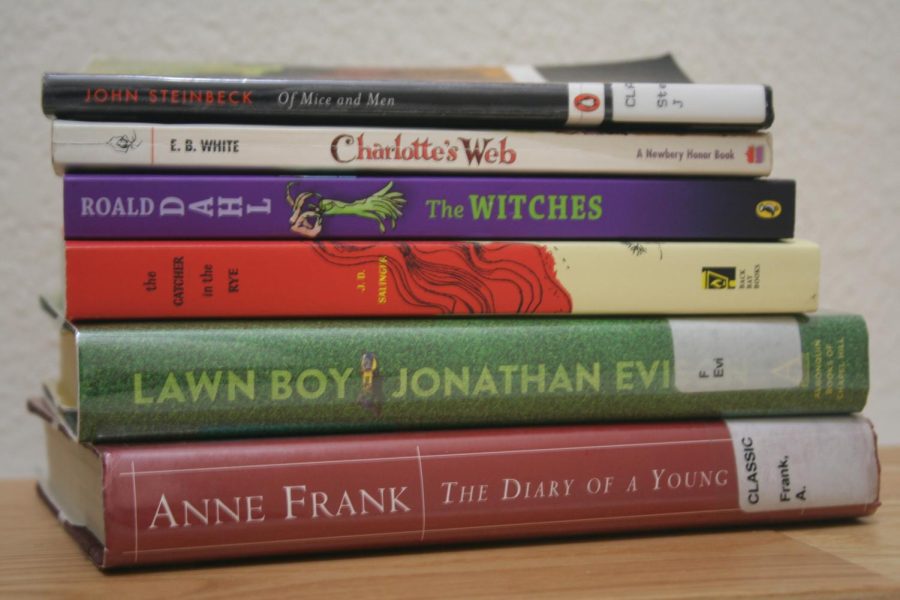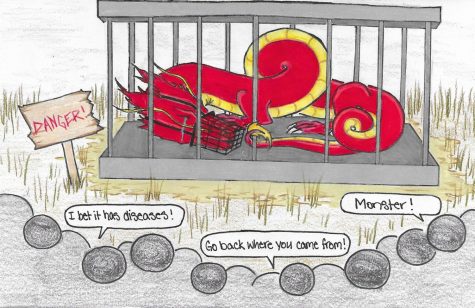Book banning infringes on right to free speech
October 27, 2022
“James and the Giant Peach,” “The Lorax,” and “Charlotte’s Web,” are innocent children’s stories, but religious and conservative groups still banned the books because they disagreed with their messages. Book bans have recurred throughout history, but school reading lists and even the classics are receiving a deeper analysis by critics today. With the scrutiny placed on many books, activists must strive to prevent current efforts to censor knowledge from youth. Book bans encroach on the first amendment right to free speech and creates a narrow worldview. To deny people access to books is a travesty because it isolates future generations.
Abolishing book banning is essential to spreading knowledge and generating conversations required for society to improve. Language arts teacher Melinda Smith said, “Reflecting on the change between then and now gives us an appreciation for the struggle people in those positions went through. It allows us to have beneficial academic conversations about that language.”
Such conversations empower readers to envision the world created by our predecessors and reflect upon their actions. Without discussions about travesties happening to minorities, lgbtq+ issues, and knowledge, and discrimination, society will never improve, and we will never be able to grow as individuals. Book banning can make issues seem less valuable or not worth discussing, ceasing conversations before they can begin.
Schools provide safe and educational environments for difficult conversations, but school boards still ban many books. They often need help understanding what kids can and cannot handle. “I feel like school boards underestimate the maturity of kids,” junior Addilyn Messersmith, an avid reader, said. “They say kids can’t handle such sensitive topics.” By underestimating children in this way, adults deliver a devastating blow to their ability to flourish.
One of the most common reasons for book banning is mature language. Parents resist exposing their children to profanity. Reacting to stories on the basis of such a simple issue can prevent whole classes from reading works with impact. In fact, many of the cited reasons for banning books can prevent readers from working with titles they’re passionate about. One of Smith’s favorite titles, “The Catcher in the Rye,” was banned for explicit language, sexual content, and violence. Another favorite, “The Lord of the Rings,” was banned for promoting Satanism and witchcraft. However, she does not agree with these reactions and said, “I love all of those books, and I think they have such strong messages, especially for young people.”
Even with the crucial conversations and information, many parents challenge books because they are concerned with their children’s reactions to the publications. While they mean well, limiting this information can stunt a child’s intellectual and emotional growth. Censorship aids in inhibiting a generation from improving the world and becoming brilliant, insightful people. With the knowledge in these books, it is possible to learn from past mistakes and other perspectives. While some books may be inappropriate for some ages, banning removes the volume from all ages, preventing people’s access to fascinating and essential topics.
Speaking against book banning does not mean supporting access to every title for all ages. Restrictions are the answer to the higher maturity level of some books. This option enables access to the volume and does not cease all discussions and learning opportunities. Restricting is not perfect due to differences between children and their parents. However, it is a significant step to ending book banning worldwide.
Books connect readers and help facilitate conversations essential for understanding. Those driving the book-banning epidemic want to prevent these conversations and isolate people. They understand the power of books and the knowledge books offer; permitting this to continue would be a tragedy.








